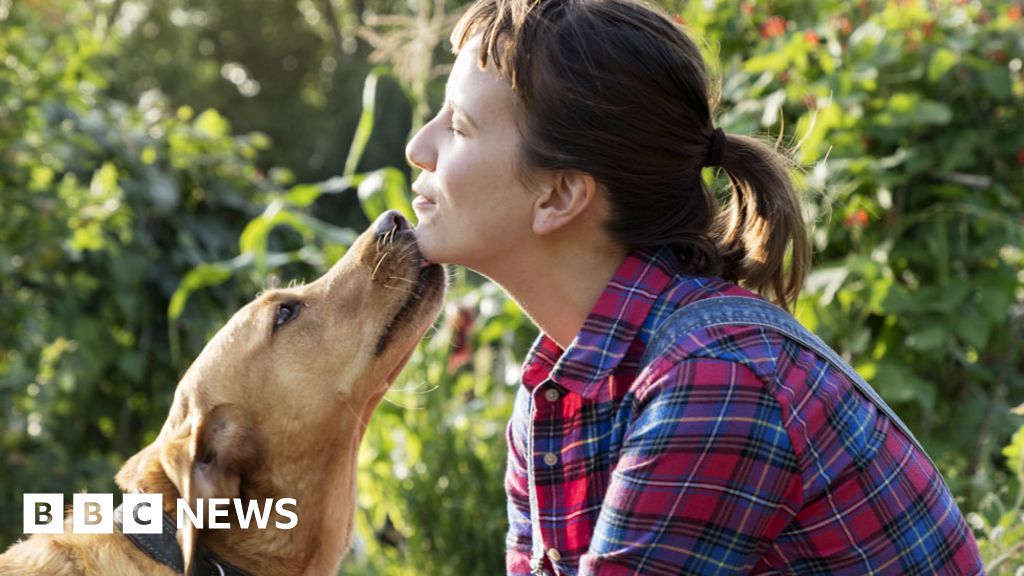Vet Prices Review Over Fears Pet Owners Are Being Overcharged

A review of veterinary services in the UK has been launched over concerns that pet owners could be paying too much.
The Competition and Markets Authority (CMA) said vet fees were rising faster than other goods and services during the cost-of-living crisis.
Pet owners can face "eye-watering" bills, said consumer group Which?, which shared its findings with the CMA.
The British Veterinary Association said it had not seen evidence that changes in the sector were pushing up prices.
The vet industry is worth £2bn after pet ownership rose to two-thirds of UK households during the Covid pandemic.
When pets need urgent treatment, owners may not have all the information to decide on the best deal, the CMA said.
Its chief executive, Sarah Cardell, said: "Caring for an ill pet can create real financial pressure, particularly alongside other cost of living concerns.
"When a pet is unwell, they often need urgent treatment, which means that pet owners may not shop around for the best deal, like they do with other services."
Sue Davies, the head of consumer protection policy at Which?, said: "Consumers have no choice but to turn to vets when their beloved pet is sick or injured - often footing eye-watering bills in the process."
She added that areas of concern included pet owners not knowing the price of treatments until after their appointment, and difficulties shopping around for cheaper medication.
The coronavirus pandemic saw more people working from home and now about 60% of households have a pet, the CMA said.
But now many owners are struggling with squeezed household budgets as price rises reach near-record highs, meaning more needs to be done to make sure vet costs are fair, it said.
George Lusty from the CMA told the BBC's Today programme that the costs of specific treatments, such as booster jabs, were rising rapidly.
"We're seeing that most people are paying about £45 for an individual booster jab. But there's many other services and costs that people cannot have predicted and they can find themselves unexpectedly facing some really high bills
"When other household bills are going up very steeply at the moment we want to do everything we can to make sure that people can predict how much it's going to cost to see a vet - both the routine stuff but also if there's a crisis."
The CMA was also concerned about changes in ownership of vet practices in recent years.
Independent practices accounted for 89% of the UK veterinary industry in 2013 - but that had fallen to about 45% by 2021, said the CMA.
"In some cases, a single company may own hundreds of practices and it may be unclear to people whether their vet is part of a large group", the CMA said. "This could impact pet owners' choices and reduce the incentives of local vet practices to compete".
The British Veterinary Association, which represents more than 19,000 vets, said it supported "healthy competition".
"The veterinary sector has undergone significant changes in recent years, with the growth of large veterinary corporates operating alongside independent vet practices," said BVA president Malcolm Morley.
"Sadly, soaring inflation and the cost-of-living crisis is impacting both pet owners and business, including vet practices.
"However, we've not seen any hard data or real evidence to suggest that corporatisation is driving up prices or negatively impacting quality of care."
Last week, the Celia Hammond Animal Trust said a shortage of vets due to Brexit means people are struggling to get their animals neutered.
Ms Cardell said: "There has been a lot of consolidation in the vet industry in recent years, so now is the right time to take a look at how the market is working."
The CMA would like to hear from pet owners, veterinary surgeons, veterinary nurses, practice managers and veterinary businesses as part of the review. It said it will provide a further update and its next steps in early 2024.
The CMA's review follows its annual plan which sets out that the regulator "will act in areas of essential spending and where people are under particular financial pressure, such as accommodation and caring for ourselves and others".
Are your vet bills on the rise? You can get in touch by emailing haveyoursay@bbc.co.uk.
Please include a contact number if you are willing to speak to a BBC journalist. You can also get in touch in the following ways:
If you are reading this page and can't see the form you will need to visit the mobile version of the BBC website to submit your question or comment or you can email us at HaveYourSay@bbc.co.uk. Please include your name, age and location with any submission.
From Chip War To Cloud War: The Next Frontier In Global Tech Competition
The global chip war, characterized by intense competition among nations and corporations for supremacy in semiconductor ... Read more
The High Stakes Of Tech Regulation: Security Risks And Market Dynamics
The influence of tech giants in the global economy continues to grow, raising crucial questions about how to balance sec... Read more
The Tyranny Of Instagram Interiors: Why It's Time To Break Free From Algorithm-Driven Aesthetics
Instagram has become a dominant force in shaping interior design trends, offering a seemingly endless stream of inspirat... Read more
The Data Crunch In AI: Strategies For Sustainability
Exploring solutions to the imminent exhaustion of internet data for AI training.As the artificial intelligence (AI) indu... Read more
Google Abandons Four-Year Effort To Remove Cookies From Chrome Browser
After four years of dedicated effort, Google has decided to abandon its plan to remove third-party cookies from its Chro... Read more
LinkedIn Embraces AI And Gamification To Drive User Engagement And Revenue
In an effort to tackle slowing revenue growth and enhance user engagement, LinkedIn is turning to artificial intelligenc... Read more

